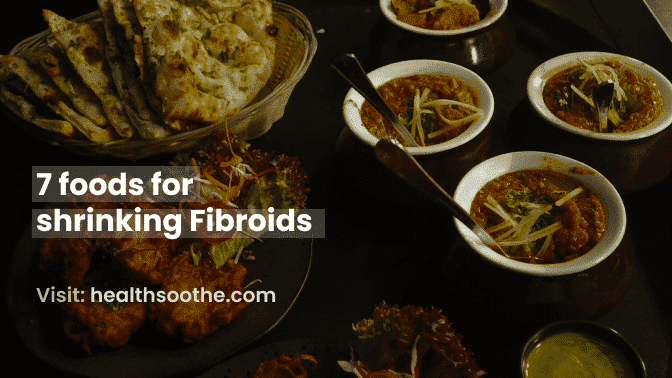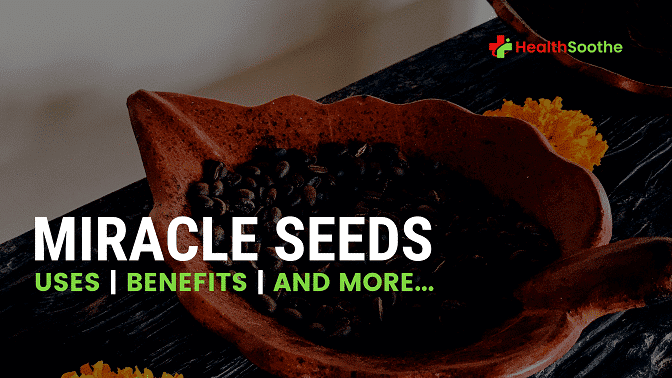Fibroids are unnatural uterine growths. They are also known as myomas, leiomyomas, and uterine fibroids.
Although fibroids are neither malignant nor life-threatening, they may sometimes result in difficulties and other health issues.
In and around the uterine walls, fibroids develop. They are constructed of tissues and muscles.
They might become as big as a tennis ball or as little as a seed. You could have one or more fibroids.
Doctors are unsure of what causes fibroids. Your risk is increased by being overweight or obese and by having low amounts of certain nutrients.
Read Also: 20 Benefits and Uses of Miracle Seeds for Fertility, Fibroids, Infection and more
Prevalence
In their lives, 80% of women will have fibroids. The ailment might potentially run in the family. If your mother or sister has fibroids, your risk is increased.
Fibroids may result in symptoms and issues like:
- pain
- severe bleeding throughout the period
- constipation
- anaemia
- having trouble getting pregnant
- miscarriages
Only 20 to 50% of women with fibroids have symptoms, however. Treatment is often not required.
Your doctor could advise you to wait and observe to see whether the fibroids disappear on their own.
Although foods cannot cure or prevent fibroids, your regular diet and way of life may help lower your risk.
Hormones which may cause these growths may be brought into balance by diet. Additionally, certain meals may reduce the symptoms of fibroid.
Changes in diet and way of life to reduce risk
You may adjust a few things that can lower your chance of developing fibroids.
eat a Mediterranean-style diet
Fill your plate with a variety of fresh and cooked green vegetables, fresh fruit, legumes, and seafood. One method to do this is with a Mediterranean diet.
According to research, frequently consuming these foods may help reduce your chance of developing fibroids.
However, consuming red meat, such as beef, gammon, lamb, and other varieties, may increase your risk.
For advice and a meal plan, see a beginner's introduction to the Mediterranean diet.
Drink less alcohol
Your risk for fibroids may rise if you consume any sort of alcohol. Alcohol increases the hormone levels required for fibroids to develop, which may lead to this. Inflammation may also be brought on by alcohol.
According to one research, women who consume one or more beers each day significantly increase their risk. To lower your risk, avoid or consume alcohol in moderation.
Equalize oestrogen
A healthy reproductive system is dependent on the hormone oestrogen in both women and males.
However, having too much oestrogen might worsen or increase your chance of developing fibroids.
Many fibroids therapies operate by reducing oestrogen levels. Other approaches to maintaining healthy oestrogen levels include:
shedding pounds. The risk of fibroids is increased by obesity and excess weight. Losing weight may help prevent or decrease the formation of fibroids because fat cells produce more oestrogen.
avoiding substances that affect hormones. Your endocrine system's equilibrium may be upset by both natural and artificial substances, which raise oestrogen levels.
Through contact with your skin and food, these substances may enter your body. Limit or avoid contact with substances that may be present in:
- fertilisers
- pesticides
- plastics, including BPA
- cookware that has nonstick coatings
- fire extinguishers
- dyes
- paints
- a few personal care items
Blood pressure reduction
The majority of women with severe fibroids also have high blood pressure, according to research. To determine if there is a connection, further study is required.
Blood pressure control is essential for maintaining overall health. Try the following advice:
- Don't add salt. Instead, use herbs and other spices to season dishes.
- Limit packaged and processed foods rich in salt.
- Use a home monitor every day to check your blood pressure.
- Regular exercise
- Lose weight, particularly from the waistline.
- Limit your alcohol intake.
- Eating a majority of vegetables at each meal can help you get more potassium.
- Avoid passive smoking and stop smoking.
- Take your high blood pressure medicine as directed if you have it.
- Visit your physician often for checks.
enough vitamin D intake
Your risk of fibroids may drop by about 32% with vitamin D.
When your skin is exposed to sunlight, your body naturally produces this "1sunshine vitamin."
You're more likely to be deficient if you have darker skin or reside somewhere cold.
Your levels may be raised with the use of supplements and meals like:
- egg whites
- milk, cheese, and dairy goods that have been fortified
- enriched grains
- enhanced orange juice
- fatty fish like mackerel, tuna, and salmon
- fish liver oil
A word on diet and smoking
Consuming colourful fruits and vegetables is beneficial for your overall health.
Rich antioxidants are provided by consuming a variety of red, yellow, and orange foods.
Additionally nutrient-dense and advantageous to health, dark greens.
These vitamins and minerals could help protect you against illness, including certain malignancies.
However, research indicated that the beta carotene included in meals that are red, yellow, and orange did not reduce the incidence of fibroid development.
Beta-carotene may potentially raise risk in smokers. We need to do further study to determine why this could occur.
Smoking is bad for your health in general and may raise your risk of fibroids.
Eat these foods if you have fibroids
Fibroids cannot be cured by diet alone. A healthy diet, however, may also aid in reducing certain fibroid symptoms and problems. In rare situations, certain foods may help inhibit the development of fibroid.
Fiber
Foods that are high in fibre help with weight reduction and hormone balancing. Additionally, they support stable blood sugar levels.
These factors suggest that fibre may aid in preventing and reducing the formation of fibroids. Include these natural items in your diet:
- veggies both raw and cooked
- Dried, prepared, and raw fruit
- spaghetti and whole grain bread
- cruciferous plants
- oats
- lentils
- barley
- beans
Potassium
- Potassium aids in maintaining healthy blood pressure by balancing the effects of salt. Include these foods high in potassium in your regular diet:
- avocado
- bananas
- citrus
- cantaloupe
- greens, collard
- dates
- lentils
- Avena bran
- potatoes
tomatoes
Dairy
Yoghurt and full-fat cheese are examples of dairy items you should include in your diet. Calcium, phosphorus, and magnesium are abundant in dairy.
These minerals could both prevent and reduce the formation of fibroids. Milk that has been fortified includes vitamin D.
Green tea
Several antioxidants are included in green tea. One of them, epigallocatechin gallate, may help prevent the formation of fibroids by reducing inflammation and excessive oestrogen levels, according to research.
Low iron levels and other fibroids-related heavy bleeding symptoms may be helped by green tea.
Avoid these foods if you have fibroids.
Sugar
Simple carbs and sugary meals may cause or exacerbate fibroids. These foods cause an increase in blood sugar.
Your body produces too much insulin as a result of this. Extra insulin may increase body weight and have an impact on fibroid development.
Avoid additional sugars and refined carbohydrates like:
- sugar, table
- glucose
- dextrose
- maltose
- corn sugar
- fructose-rich maize syrup
- white flour, rice, bread, and pasta
- Drinks and sweet beverages
- fruit nectar
- fried potatoes
- crackers
- packed bars of energy
foods that raise oestrogen
2Phytoestrogens, which are natural substances found in certain foods, mimic the effects of oestrogen in the body.
Other foods either contain more hormones or cause your body to produce more oestrogen.
When ingested in small to moderate amounts, several of these foods may have protective properties; but, when consumed in large quantities, they may have adverse consequences. Foods like: may need to be restricted or avoided.
- harmonized red beef from certain sources
- the soybean
- nut milk
- tofu
- hemp seed
Conclusion
Your general health depends on eating a balanced diet and keeping a healthy weight.
Despite your best efforts, you may not be able to avoid fibroids.
If you believe you could be in danger or if your health seems to be changing, see a doctor.
Your doctor will decide the best course of therapy if you have fibroids.
The first step in treating fibroids and symptom relief is making healthy dietary and lifestyle adjustments.
Even if you are receiving medication, 3surgery, or another kind of treatment for fibroids, you must adhere to your eating plan.
To assist relieve symptoms, your doctor may also suggest herbal treatments, complementary approaches to pain management, stress management, and dietary supplements.
Discuss the ideal diet plan for you as well as other measures to avoid and lessen the symptoms of fibroids with your doctor and nutritionist.
Additional resources and citations
- 1sunshine vitamin
- 2Phytoestrogens
- 3surgery



